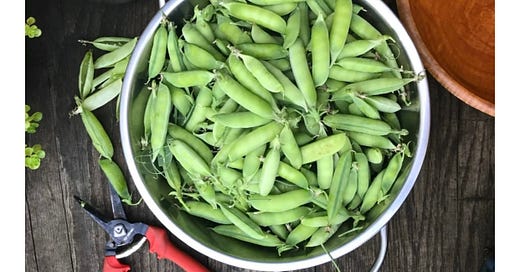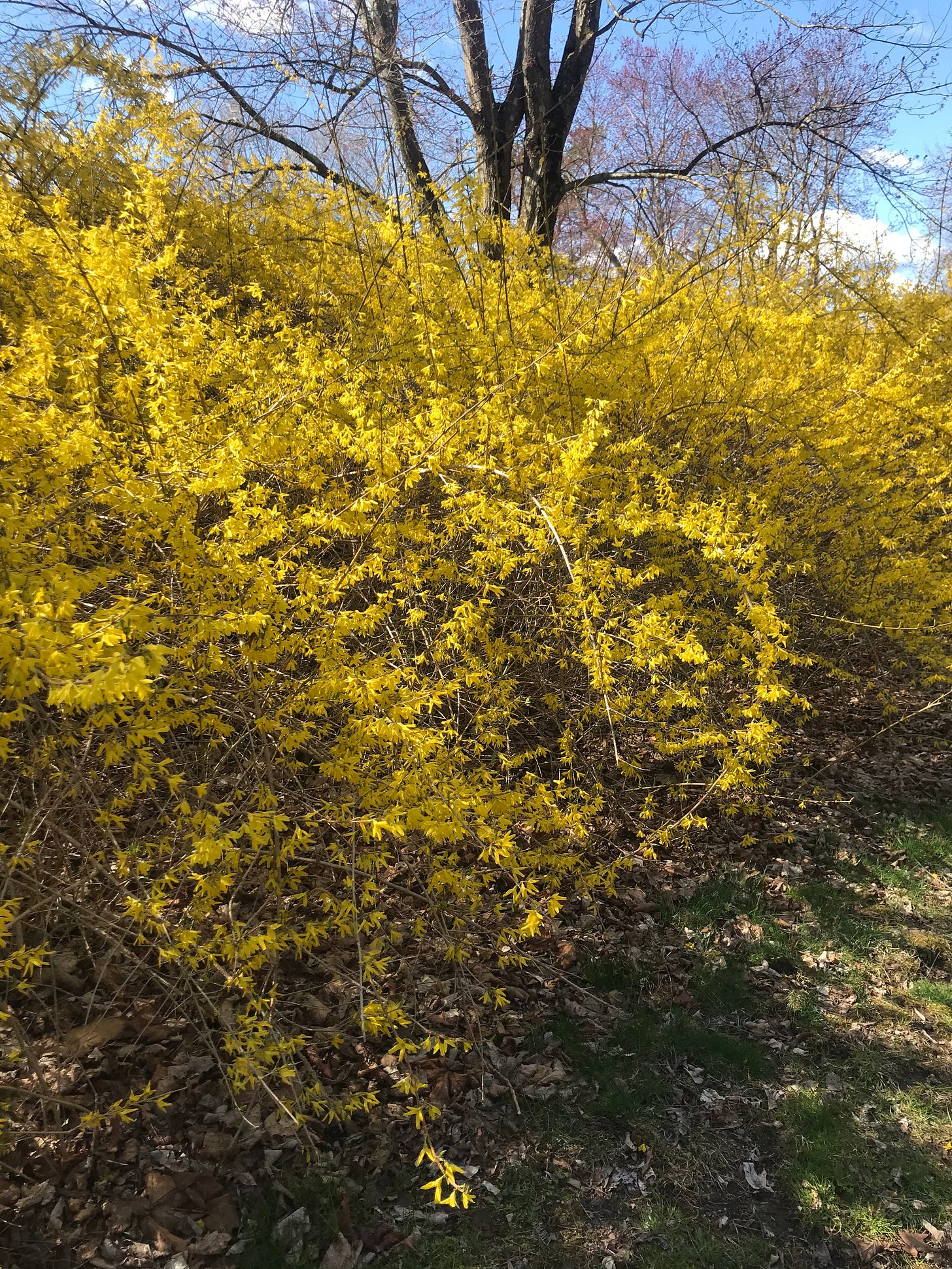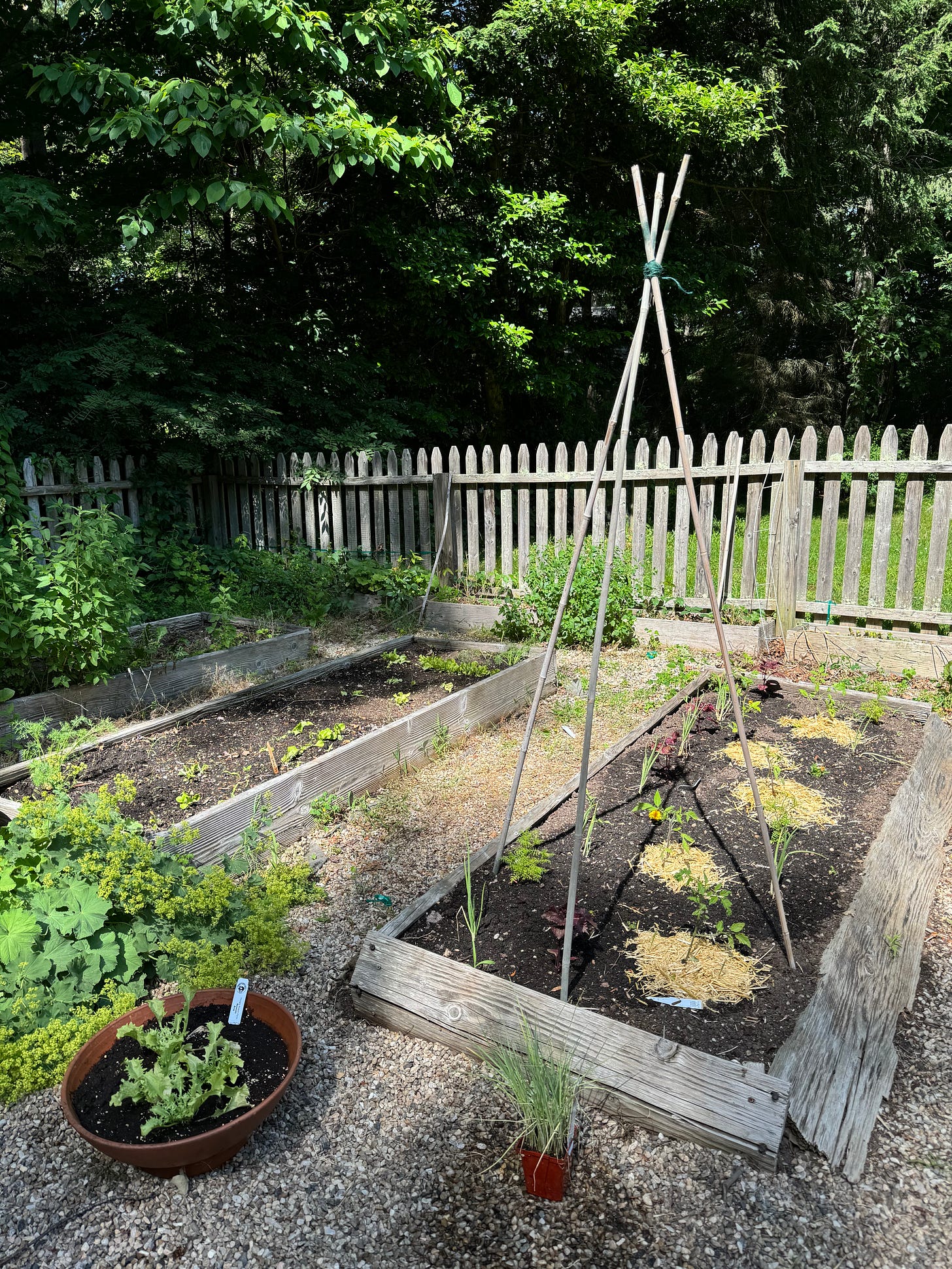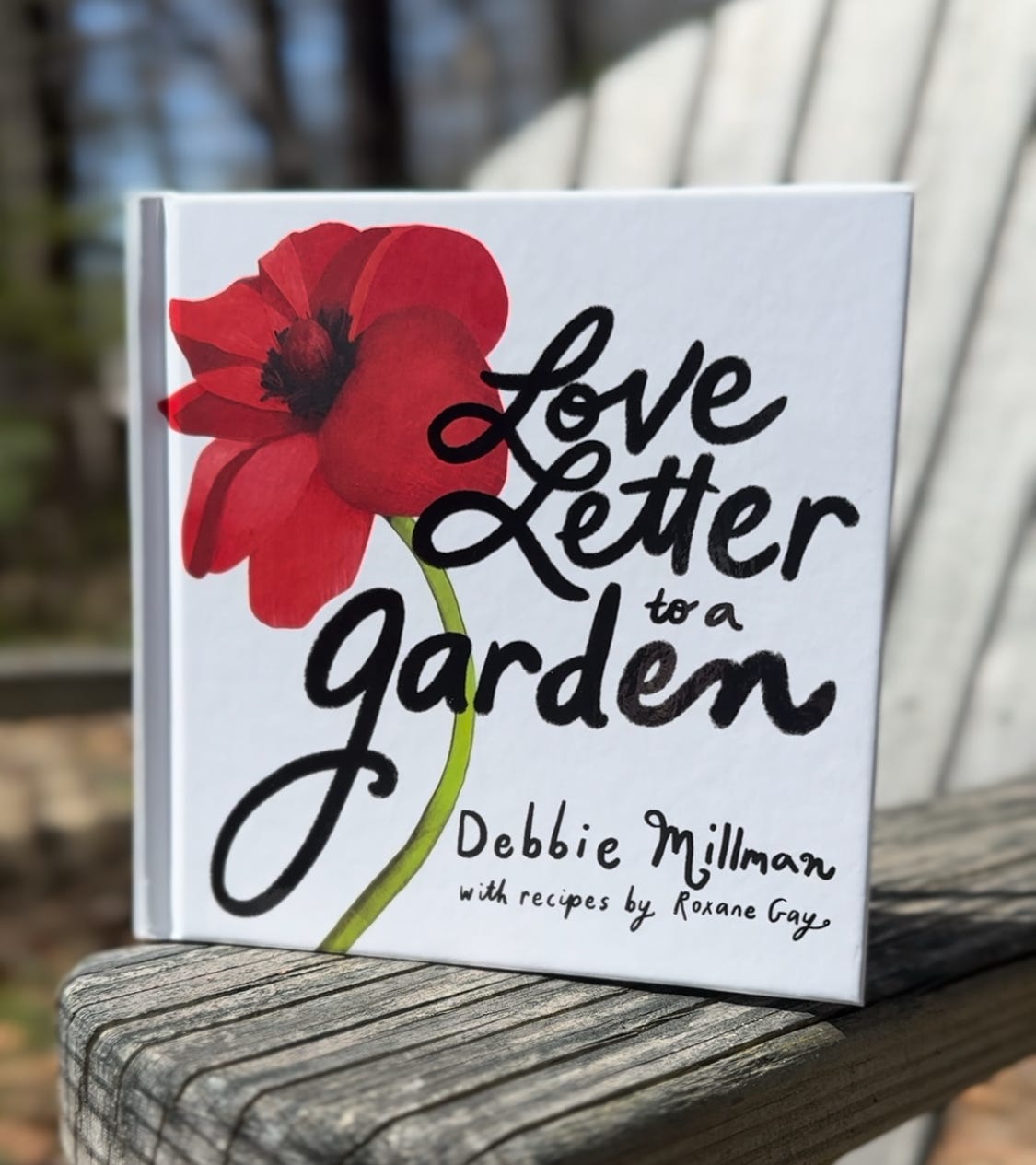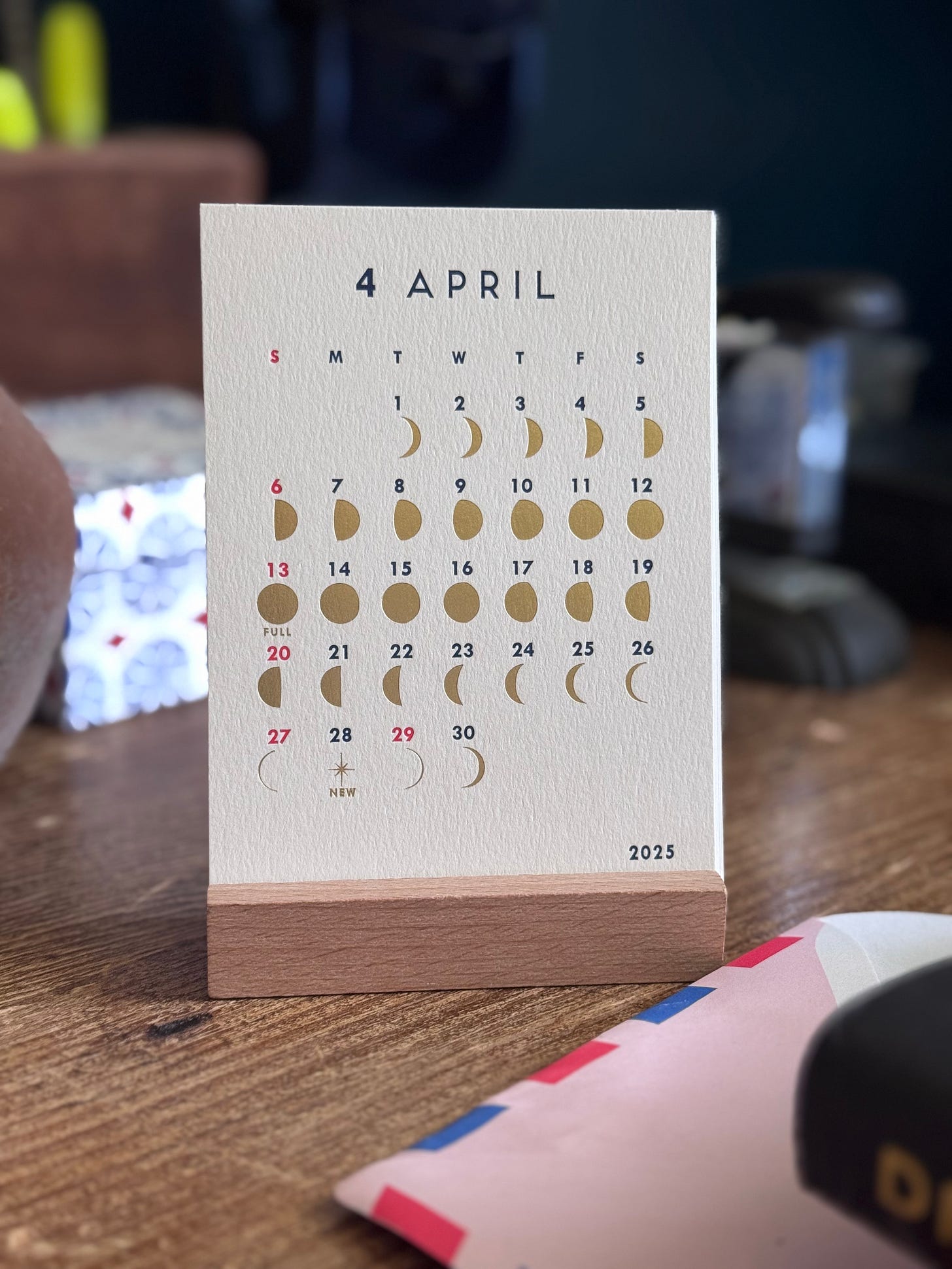It has been a little while since I have written here; Permission came into the world in early March, and I have been out there in conversation with wonderful and generous people, appearing at amazing bookstores and book festivals and spiritual centers, teaching workshops and seminars, publishing essays and excerpts here and here, and will continue to do so into the fall. But as any working writer will tell you, entering into the days following publication is like stepping into a cumulus cloud: one loses sense of time and space and date. Is it still March? April? What day of the week is it?
The March publication of Permission coincided with the beginning of planting season; I begin thinking in earnest about our garden in March — specifically, March 17th, St. Patrick’s Day — because this is when peas are (supposedly) meant to be planted. I don’t know who made up this rule, but I tend to be romantic about it to my Yankee wife’s dismay; I remember a great M.F.K. Fisher essay, P is for Peas, from An Alphabet for Gourmets, about planting them at the right time (not March in her case, but May; she was near Vevey, Switzerland, presumably at higher altitude), harvesting them from their terraced plot at the exact moment they were ready, shelling them, racing them into a pot with a little water and cooking them quickly to avoid their turning starchy. (The act of shelling peas itself can be seductive or at at least engaging: the only time I’ve ever had a back-and-forth with
was when she saw the video of Susan shelling peas in our garden a few years ago (above), and she wrote me a note to say she’d seen it; I swooned for days.) The Fisher essay made me a fan of growing peas — I grew up eating them canned and they were completely vile — but spending a lot of time in England made my pea-fervor stronger: our recent Easter dinner for just the two of us was comprised of ham, potatoes, and buttered peas, and it was perfect. When it’s just the two of us, which it increasingly is, I no longer cook big meals: Sunday supper might be a roast chicken stuffed with tarragon or a grilled steak with charred broccoli and small potatoes, Friday might be a simple fish (not because Susan was raised devoutly Catholic or because I was raised in a community that was largely Catholic; fish on Friday night just seems normal to both of us). Weeknights are whatever falls out of the fridge, sometimes literally.I used to believe that reducing the size of our garden was a metaphor for a declining relationship; in fact, nothing could be further from the truth.
But, the garden. Now it’s April. Right on cue, the enormous Forsythia border across the street from us popped during the first week of the month, exactly when the Shad began to run in the Connecticut River; if the Forsythia is late, so are the Shad. By the second week of April, I had an oh shit moment while at a book event: lettuce seeds are supposed to be in along with those for heartier greens, carrots, and herbs. Onions and leeks should go in soon. In a few weeks, climbing and bush beans should be planted. Last weekend, when I had two hours of free time where I was not working on Permission, I ran to a local nursery and bought two big bags of organic compost, came home, hand-turned two of our raised beds and was delighted to see a proliferation of annoyed worms, worked in the compost, turned the soil, raked it to make it nice and smooth, and went back to work at my computer. The rest of the garden looks like a bomb went off in it: the roses need pruning, the perennial bed is exploding with evidence of life (and raspberry canes and poison ivy), we have foxglove everywhere now, the hydrangeas need work (we leave everything untouched so that small critters have places to take cover during the cold weather) and we have to make a final decision about what is going into the other two vegetable boxes. When we put in this garden back in 2012, we overshot by a lot: six eight-foot-by-three-foot raised beds is just way too much for two people with bad backs and no yard help (beyond our mowing guy, Al, who looks like Woody Guthrie). And when we stopped wanting to spend any time in the garden after work — theoretically a great place to sit quietly and have a cup of tea — our personal gardening guru, Katherine Whiteside (a former author of mine from my book publishing days) sized the mess/place up and said It’s too much for you; no wonder you don’t want to be in here. We made the decision to reduce our box count by two, which makes more sense for us. I used to believe that reducing the size of our garden was a metaphor for a declining relationship; in fact, nothing could be further from the truth. We’re more interested in beauty, color, texture, and the desire to be together in the garden without completely destroying our bodies in the process.
I’ve been reading the work of a lot of British gardeners and writers, my (current) favorite being Olivia Laing (who could write a phone book and I’d want to read it) and also Rosemary Verey, Monty Don, Derek Jarman, and Nigel Slater. In a month, we’ll be traveling to England and Scotland and in between visiting friends and family we never get to see, we will also will be going to Sissinghurst, Great Dixter, Derek Jarman’s Prospect Cottage, and others. (And if you have any advice, please let me know in comments, below.) I’ve long stopped trying to mimic the English gardens I love — they’re my absolute favorites, and if I had the chance, I’d want a small one that was walled — because England is classified as a humid temperate oceanic climate: it is warmer in the winter than it is here in New England (and when my English friends’ snowdrops appear in their gardens in January, I could weep) and cooler in the summer (except for the season I spent in Cambridge in 1983, when it was nearly 90 degrees F every day and the gardens at Queens College exploded, wilted, and nearly died). Which is to say that very often, what flourishes in England often falters mightily here; I’ve stopped forcing the issue, so to speak, but I still lust after a hearty pea crop, like the one in Switzerland that M.F.K. Fisher wrote about.
I had a long conversation with the brilliant writer, artist, and gardener Debbie Millman about this, in celebration of her beautiful new book, Love Letter to a Garden; we talked about the literal act of putting down roots, but also the inevitability of growing what we want rather than what will work with where we are. In her first garden in New York City, she planted sun-loving shrubs in the shade, and much of it died. In her second garden in New York City, she planted what she knew would grow, and it did. Now, the Los Angeles garden she shares with her wife,
is sun-splashed and lush, and what grows there grows well. Debbie’s book is an antidote to fear and uncertainty, although gardening is nothing if not an exercise in uncertainty (and hope, and beauty).On my desk sits a small calendar of moon phases, a gift from my dear friend
. I am a double water sign — Cancer and Pisces — and whether I want to believe it or not, I’m deeply effected by the phases of the moon, but apparently not effected enough to remember this rule, which likely guided the planting and gardening schedule of my wife’s grandmother who was a subsistence farmer in the rocky soil of northern Connecticut during The Depression:Plant your peas and corn in the field when the moon is full, or risk failure…The attention of the seed to the draw of the moon is, I suppose, measurable, like the tilt of the planet….
These words come from Mary Oliver’s Do You Think There is Anything Not Attached By Its Unbreakable Cord to Everything Else? Soil touches sky; seed touches moon; pea touches soil; pea touches plate; Forsythia blooms; Shad run. When I have a book come out in the spring, as I have with Permission, I am tethered, wherever I am, to the facts of the season, the frenetic urge to run home and get my hands in the dirt, to plant peas even if the soil is still partially frozen, to pull off my shelf every book about gardening I own, and to remember the moon when I plant: everything is connected.
Keep reading with a 7-day free trial
Subscribe to Poor Man's Feast to keep reading this post and get 7 days of free access to the full post archives.


